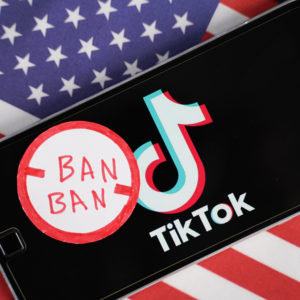TikTok may currently be the most downloaded app in the world, but it is also quickly becoming the most banned in the U.S.
Pennsylvania Treasurer Stacy Garrity just announced she has banned the app, best known for funny dancing videos, from all of her department-issued devices. That puts Pennsylvania on the growing list of states imposing restrictions on TikTok access via government tech.
“Treasury’s computer network is targeted by scammers and criminals every day,” Garrity said. “TikTok presents a clear danger due to its collection of personal data and its close connection to the communist Chinese government. Banning TikTok from Treasury devices and systems is an important step in our never-ending work to ensure the safety of Pennsylvanians’ hard-earned tax dollars and other important, sensitive information entrusted to Treasury.”
TikTok is owned by ByteDance and is based in Beijing. The head of the FBI recently called a national security concern due to the close connections between the company and the Chinese Communist Party, as well as the app’s aggressive data collection.
The cybersecurity firm Internet 2.0 reports data collection on the app was “overly intrusive” and flagged a connection in it to a server in mainland China. China’s National Intelligence Law of 2017 requires citizens and businesses to “support, assist and co-operate with the state intelligence work.”
Republicans in Congress and in statehouses across the country have been raising the alarm. The newly-passed $1.7 trillion omnibus spending bill includes a ban on TikTok on federal government devices.
And at least 16 states — Alabama, Georgia, Idaho, Iowa, Maryland, Montana, Nebraska, New Hampshire, North Dakota, Oklahoma, South Carolina, South Dakota, Tennessee, Texas, Utah, and Virginia –- have banned the app for their state-owned tech.
“This move will help preserve the safety, security, and privacy of the citizens of New Hampshire,” said Gov. Chris Sununu (R-N.H.), who’s reportedly considering a 2024 presidential run.
TikTok tells InsideSources the attacks on its app are baseless.
“We’re disappointed that so many states are jumping on the political bandwagon to enact policies that will do nothing to advance cybersecurity in their states and are based on unfounded falsehoods about TikTok,” said TikTok spokesman Jamal Brown. “TikTok is loved by millions of Americans, and it is unfortunate that the many state agencies, offices, universities, student groups, and sports teams in those states will no longer be able to use TikTok to build communities and share information.
“We are continuing to work with the federal government to finalize a solution that will meaningfully address any security concerns that have been raised at the federal and state level. These plans have been developed under the oversight of our country’s top national security agencies—plans that we are well underway in implementing—to further secure our platform in the United States, and we will continue to brief lawmakers on them,” Brown said.
Before joining TikTok in November, Brown formerly worked for President Joe Biden’s campaign and then the Pentagon.
Former President Donald Trump had similar concerns about TikTok security and banned the video app by executive order in 2020. However, Biden, who reversed most of Trump’s executive orders when he took office, revoked the TikTok ban, too.
The White House did not respond to a request for comment.
Mike Caputo, who served as a spokesman for the Health and Human Services Department in the Trump administration said, “Chinese TikTok is clearly a national security threat when it’s downloaded on government devices. Even more dangerous is the kind of federal bureaucrat who is stupid enough to download any Chinese app at all – imagine all the other foolish decisions they’re making.”

